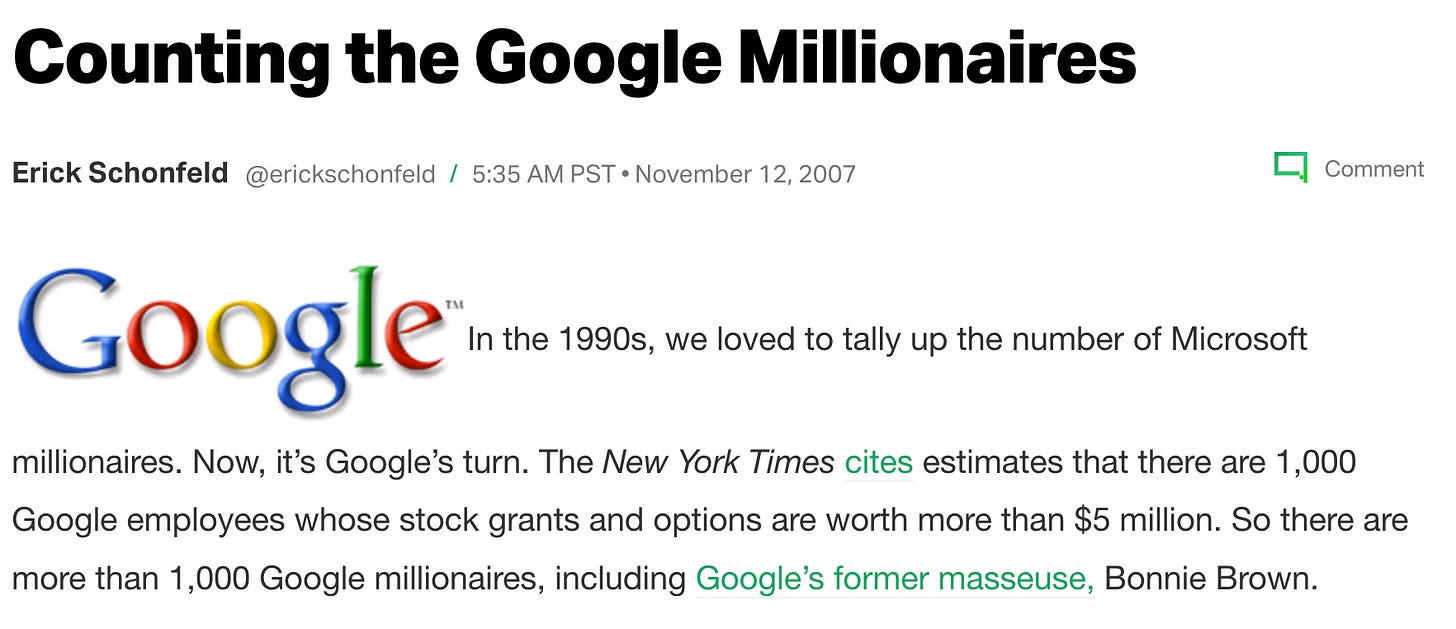Welcome to Silicon Valley Outsider, a newsletter for aspiring startup founders and investors who live outside the SF Bay Area.
Subscribe today to become one of my 680 closest friends:
Earlier this week, an anti-work Twitter mob was yelling and screaming about this tweet:

Bun is a ~10-person startup, and their CEO had the audacity to say that it takes hard work to succeed there.
The yelling and screaming that followed can be summed up as follows:
“I can’t think of any reason why anyone would want to work hard at their job.”
“Therefore, no company should ask their employees to work hard, ever.”
Here’s an example:


Anyone who thinks that way does not understand how startups work. So I’d love to set the record straight.
The foundational fact of work in Silicon Valley is that most startups fail. This means that the contribution of every employee at a startup is important — if an employee does poorly, they will negatively impact the company.
Startups also figured out that they can positively motivate people by offering them equity in the company. Work hard: you and the company succeed. Slack off: you and the company fail.
As a result, startups are high-octane work environments. Every person has to contribute or the company will fail (negative motivation), and knows that if everyone contributes, their equity might be incredibly valuable (positive motivation).
These incentives mean that you need to work hard and you should want to work hard as a startup employee.
Note that at no point does an evil, cigar-chomping, ur-capitalist, 1920’s tyrannical boss enter the picture.
🌟 Every day, rational people decide that working hard a startup is a good career move.
I made that choice, and it has played out exactly as I hoped it would. Within a few months of making the decision to join Astranis, I had real responsibilities that mattered for the company: I named our first satellite, wrote a technical onboarding guide, helped the company budget its newly-raised Series B cash, and became our first technical recruiter. A year later, I had been promoted twice.
To achieve that trajectory, I worked extremely hard, which was taxing on my personal life: I had less time to spend with my girlfriend (now wife); I was a flaky friend; I had to learn how to have hobbies outside of work. It wasn’t ideal, but I made it work because I did my research and knew what I was getting into — my wife and I knew what to expect.
What I knew then is what I tell prospective hires now: startups are a great fit for people who want to work hard to accelerate their careers.
🌟 Here’s the bottom line: in big life decisions, like how hard to work, you have to admit that your choices come with tradeoffs.
If you choose to work hard, your life outside work will be tough but you’ll get more and better opportunities in your job. If you choose not to work hard, you’ll have more time for non-work things, but get fewer and worse opportunities in your job (on balance).
There are great reasons to choose either option — there isn’t a correct answer here — and this is a continuous choice, in that you can dial up or down your level of hustle for different phases of your life and career. My north star has always been to work insanely hard in my 20s and early 30s so that I can spend more time at home once kids enter the picture. I think it’s important that I’m allowed to make that choice.
Some people, however, disagree. They want to call startups like Bun evil for giving people the choice to work hard, because they think there is one right choice for everybody: don’t sacrifice your personal life for work.
And that’s what really grinds my gears. It’s self-centered to assume that what’s best for you is best for everyone else. It’s naive to decide on a less demanding path and to expect everyone else to do the same. And it’s delusional to demand that others do so: you can’t chill and expect to be rewarded as if you were working hard. That’s just not how the world works.
If you choose not to optimize for your job, fine. But don’t get mad at the people who do.






Great post, Christian. While I completely understand (playing devil's advocate here), would the argument of Bun's opposition, namely the Tweet you embedded, be that start-ups do NOT let you transition into retirement? In other words, their Tweet seems to argue that since these start-ups "want you to grind" in the beginning and at the end, employees are being hired with the false pretense that their work will ease once a few decades have been dedicated? I assume that you find this view to be erroneous because, as you said, you plan on dedicating your later years to your family, no?